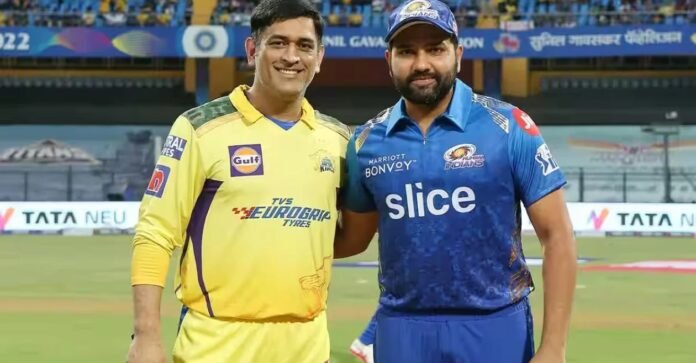The IPL, starting as a cricket league in 2008, has become a culture of innovation not only in batting and bowling but it has also helped boost the quality of captaincy. During the years, the angle of a captain has gone on to experience an interesting evolution by accepting to the dynamics of t20 exchange betting app, which keep changing. Let us embark on this engaging voyage of time and space, examining the important chapters as well as the future access point.
Early Days: The Age of Experience of Gut Feeling (2008-2012)
IPL began on a celebratory note with veterans like Shane Warne, Sourav GANGULY and Rahul DRAVID leading the way during the first seasons. after seeking the expert opinion of the team mates, these captains used their own experience and intuition to take critical decisions. Being focused on managing the relationships, over the team strategy was considered to be the essence of being a captain. Bowling techniques adhered mainly to instinctive developments, as a batsman’s strength and weakness were focuses. Field positions primarily was keeping run contained.
Strategic acumen whose peak was in 2013-2017 (2013-2017).
With the came time, teams adopted the approach of data analysis and development of strategies as IPL was getting past its infancy. Captain such as MS Dhoni and Rohit Sharma appeared with an instant tactical master-mind by the means of data analysis to get the stable field placements and bowling attands. This era marked the emergence of “death bowling specialists” and the introduction of new field formation such as the flip cordon and the backward point for a slog sweep. It made the captains devise strict strategies and deploying particular bowlers according to their skill sets to specific batsmen on their statistical weak points.
The Era of T20 Specialists and Captaincy Clusters which commenced in 2018 has just been witnessed.
IPL genes have also produced T20 professionals: players who are the best in this quick-tempo format. Persistence of the athletes like Virat Kohli and David Warner who are recognized for their aggressive batting and fielding, provided spice to the flagship moment of the tournament.
- The second half of this period observed the formation of “captaincy cliques,” and this time the seniors and the head coaches worked together to brainstorm along with the captain. With the arrival of DRS technology, captain started to be more attentive in taking decisions. They instructed a replay to investigate and instead to refine essential on-field calls. Indibet login is a dynamic online gambling web, with a variety of specialized gaming solutions designed for the preferences and requirements of the Indian players.
- Emerging Trends: What’s the Next Frontier This?
- Several new trends are shaping the future of captaincy in the IPL:Several new trends are shaping the future of captaincy in the IPL:
- Data-Driven Captaincy: The function of the analysis of data is getting even more indispensable no matter what industry or channel. Captains are applying the latest analytical tools to determine, guesstimate, or forecast player behaviour, categorize pitch conditions, and manage resource allocation in an intelligent way.
- Impact Player Rule: The effect of the “Impact Player” rule that was adopted in 2023 increases the bound to a tactical level for team management. Leaders now can avail the facility of substituting a team member during the middle of the innings, giving them the opportunity to change the match situation and gain an advantage by identifying and target weaknesses of the opposite side.
- Focus on Mental Conditioning: The foundational aspect of captaincy is increasingly being taken into cognizance. Skippers by now are focusing on some of the active methods of mindfulness training such as mental imagery and visualization to eliminate the demoralizing effects of stress and to arrive at rational decisions when facing the most dangerous circumstances on the field.
- Emphasis on Leadership Styles: Leadership styles now are being taken into account, as some teams are realizing due to their roster of players and style of play they have, which style suits them the most. Notwithstanding there are captains who can be categorized as more authoritarian whereas others prefer a more group-centered strategy.
- Impact on the Game:
- The evolution of captaincy in the IPL has had a profound impact on the way the game is played:The evolution of captaincy in the IPL has had a profound impact on the way the game is played:
- Increased Emphasis on Strategy: IPL Winners list battles have become the tournaments where the skilled players’ victorious exploits are a matter of the logical reasoning of their mentors. The strategy a team chooses is more comprehensive as a result of data analytics, artificial intelligence as well as information exchange amongst teams.
- Focus on Player Development: Nowadays it’s the captains that are providing young players with the necessary guidance and assistance to emerge successfully in the team.IPL brings young players in the action playing along the help of the senior captains who passed on the experience gained in their career.
- Shift in Player Selection: Nowadays, the captain’s position at the stage of team selection, which is more favorable for them. Now the captain’s only choice is to put together his staff by acting on particular positional issues within the team’s strategy and not just the most gifted players.
- Challenges and Considerations:
- While the evolution of captaincy has brought about positive changes, there are challenges to consider:While the evolution of captaincy has brought about positive changes, there are challenges to consider:
- Captaincy Burden: The requirements to command, particularly with the rapidly rising proficiency of the data world, are turning out to be increasingly tiresome. Leading by example on and off the field as well as supervising others adds another intricacy to captaincy.
- Shorter Attention Spans: This type of cricket is adhered to the judgment of the audience, which lead to very fast decision-making. Injection of innovativeness along with calculated aggression should remain a fundamental trait in the commanding officer’s personality.
- Managing Player Egos: It requires a minimum of garlanding the players with wonderful talents, frankly different characters. A captain should be a person with good responsibility and communication skills who can foster strong team atmosphere.
A League of Equals?
- Teams’ reliance on data driven captaincy and the introduction of the “Impact Player” rule will tilt the balance towards the more equal system at IPL. Teams that are resource-constrained may challenge their counterparts but through using data analytics to unveil the undervalued players and using creative strategies & tactics. This might result in the never the same tournament with strong competitors and there is the potential of every team to clinching the title.
- Impact on Team India:
The leadership skills, which the young captains of the IPL incubate today, no doubt would be a priceless treasure for Indian Cricket in the near future. Their capability to do the job under tense situations together with the ability to handle the group of diverse people will prepare them for Team India in expanding their future responsibilities. This huge group of technically skilled and operationally reasonable captain could be a harbinger of a new age of Indian team’s dominance, not only in domestic cricket, but also on international level.
Conclusion: A Sneak Peek onto the Touchstone of the Tomorrow
The IPL during the current years has witnessed an emergence of a unique kind of captaincy that borders the T20 format. While captains compete by means of data analysis, adjusting to rules such as the “Impact Player,” and improving leadership skills, IPL is sure to offer a long-awaited respite. This time around, it will be the stepstone for all those upcoming players to walk on the footsteps of their elders and make a fresh history of leadership in the cricket world which has today become a highly dynamic scenario in Indibet login.


